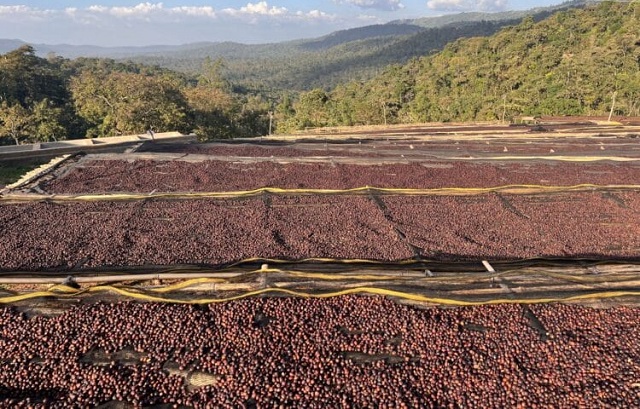
The country’s coffee export revenue has seen substantial growth, jumping from US$700 million in 2018 to US$1.4 billion in 2023
ANALYSIS | AGENCIES | Ethiopian Prime Minister, Abiy Ahmed has announced an impressive achievement of doubling Ethiopia’s annual coffee production from 500,000 tons to over 1 million tons within the last five years.
This significant milestone was highlighted during a national coffee exhibition and awareness forum held recently at the Ethiopian Science Museum.
The premier pointed out that Ethiopia has experienced a remarkable increase in revenue from coffee exports, reaching over US$1.4 billion in the last fiscal year. He attributed this growth to ongoing improvements in the macroeconomic environment and the coffee trade sector.
During his address, the Prime Minister emphasized the government’s commitment to enhancing coffee quality and production.
He noted the importance of collaboration with stakeholders, including farmers, cooperatives, and regional communities, aimed at promoting awareness and implementing best practices in coffee cultivation.
PM Abiy expressed optimism about elevating Ethiopia’s annual coffee production to one million tons by building on achievements. He stressed the necessity of sustained efforts to improve quality and market access.
“When the Green Legacy Initiative started, one of its focus areas was coffee, followed by tea, rice, and wheat,” PM Abiy explained.
Accordingly, Ethiopia’s annual coffee production has increased from 500,000 tons to over 1 million tons within the last five years.
In terms of export revenue, the nation plans to secure about US$2 billion during this Ethiopian fiscal year, Abiy said, stating that Ethiopia had obtained over US$1.4 billion in the last fiscal year.
He attributed this growth to ongoing improvements in the macroeconomic environment and the coffee trade sector.
He provided a comparative analysis of coffee production, stating, “Over the past five years, Brazil has been producing 3.7 million tons of coffee annually, while Vietnam produced 1.7 million tons per year. Ethiopia, on the other hand, was producing less than 500,000 tons of coffee annually. However, following the Green Legacy Initiative, Brazil’s production has increased to 4 million tons, Vietnam to 2 million tons, and Ethiopia has been able to double its production to 1 million tons. ’’
According to him, this indicates a significant leap in Ethiopia’s coffee production.
In his address, PM Abiy highlighted the care required in coffee farming, equating it to nurturing a child. He urged Ethiopian farmers to provide the necessary attention to enhance productivity.
” By maintaining this strength, farmers and coffee traders are encouraged to support the plans we have laid out. The work you have done in the past years is remarkable. You have put in a great collective effort, not just as traders, but with a shared goal, helping the country earn 1.4 billion dollars annually. This is an honorable achievement,” he stated.
The Prime Minister also discussed the importance of coffee quality, urging those engaged in irrigation farming to adopt best practices:
“Even those farming coffee on small hectares are expected to embrace the best coffee farming practices on their land. It’s not just about buying, but also investing in farming, where the investment leads to increased productivity. By applying this expertise in Ethiopia, you are expected to contribute significantly, alongside the government, to improve productivity and ensure we achieve high yields on small plots of land.”
On the occasion, the premier has also awarded farmers, exporters and associations for their extraordinary performance in the production and export trade of Ethiopia’s coffee, as called by ENA.
With a clear vision and commitment, Ethiopia’s coffee industry is on the path to further growth and success.
 The Independent Uganda: You get the Truth we Pay the Price
The Independent Uganda: You get the Truth we Pay the Price





